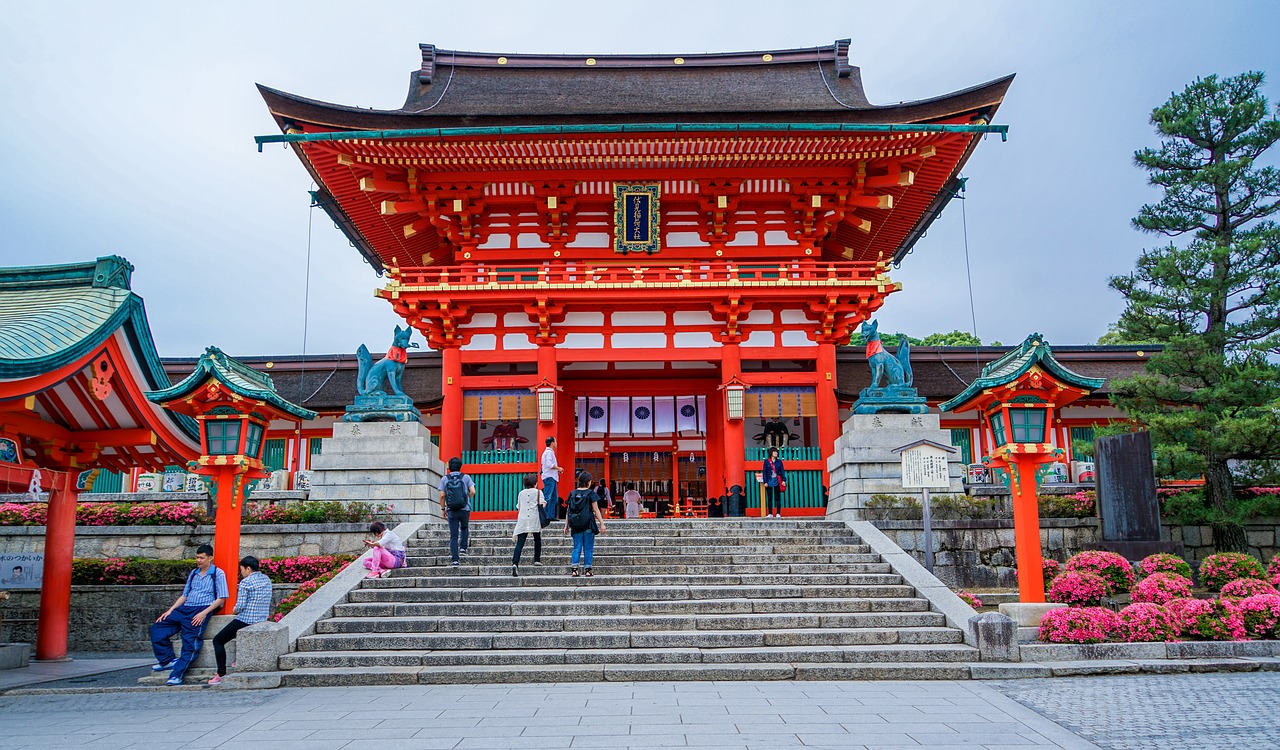How to Move to Japan ? Simple Guide By Take Me To Japan
Updated August 2020
Here is your first step.
How To Move To Japan : Over the last decade, the Japanese government has invested heavily to the job market. Many old professions are regrettably disappearing. The thriving tourism market is now replacing the number of lost traditional jobs or jobs lost to automation. Tourism operators however can only employ bilingual personnel with a high level of the Japanese language. If you are planning to move to Japan then your biggest obstacles are learning the language, followed by the culture. Remember, mastering the Japanese language doesn't necessarily guarantee your full acceptance into a traditionally conservative country. Cultural understanding and willingness to learn about it, is the key to make friends within your work colleagues and neighborhood. The biggest tip I received from my Japanese grandmother is: To not just move to Japan but, on how to move to Japan and be accepted.
Visas
If you are not Japanese and want to live in Japan; then you will need a valid visa to live here.
The well-known one is a work visa; this usually requires a 4-year degree (exceptions are for very special cases). Or, graduation from a vocational college in Japan.
A company will need to decide to sponsor you in order to get a work visa. This means that you will need to have special skills that no other Japanese person can do, in order to hire you. Teaching English is a popular option.
Different Types Of Visas Needed For Moving To Japan
Another visa is related to having family in Japan; such as a spouse visa (only do this if you actually love someone, marrying for a visa is not recommended), dependent visas (if you have a Japanese parent), etc.
Probably the easiest and the best way to come to Japan is on a student visa. This way, you are not working and stressed all the time, but you get to properly study the language, get to know the culture, make a good network of friends and more. You can also read this blog about Cost of Living in Japan and share your feedback to us so we can provide you the best solution for your problem. You will also be able expand your job opportunities to much more than teaching English (although there is nothing wrong with learning the language to live here while teaching).
Accommodation
Accommodation will be your biggest expense, and is a headache to apply for.
Thankfully, accommodation, airport pickup, finding part-time jobs, can all be arranged for you by the language school, so you do not have to do it all on your own.
Next Stage
If you already have a degree, certain language schools (I can help point you to the right one) will help match you to an employer to get a job.
If furthering studies after language school, the vocational school (where you can learn technical skills towards a profession) can help match you to an employer; and most have 100% graduate employment rates!
Support System
When moving to a new country, it can feel lonely and scary. By going to study the language, you will also get the bonus of the support system of the staff, friends you make and teachers. We are happy to answer any of your questions and help you out.
While studying at language school, you will be able to use the support system around you such as how to sort out trash, go to the local town hall to apply for the compulsory insurance (if living long-term) and paying for the compulsory pension, working out change of address procedures and all the wonderful paperwork that comes with moving to Japan. Doing this on your own will be more than overwhelming, especially if Japanese is not your first language.
About Student Visas
To obtain a student visa, there are a few requirements that you need to cover. Please see more information and How To Apply For Student Visas, here.
Student visas are great for people wanting to study towards learning the language and passing the JLPT (Japanese Language Proficiency Test) to get jobs, studying towards getting into university and vocational college in Japan.
If you are serious about moving to Japan and living here, great courses include the Intensive Course in Nagano, if you are wanting to keep living costs low and don’t want to commute on packed trains in Tokyo. The school will help support you to learn all four skills reading, writing, listening and speaking, while being fully immersed in the culture.
Another option is to spend time in the Japanese countryside. When you think of Japan, often only Mount Fuji and Tokyo Tower come to mind, but in fact, Japan is actually mostly rural, with the terrain mostly rugged and mountainous with 66% forest. To see the ‘real Japan’, it is advised to venture slightly out and meet the local people. To beat the declining populations in rural areas, small towns are taking initiative and building brand new facilities such as I.T. parks, where start-ups can set up offices with low rent, and business academies where people can learn to start up their own business. The other day, in Kuroishi, Northern Japan, I visited what used to be an onsen (hot spring), which was renovated into a beautiful community centre, equipped with tables and laptops, together with tatami rooms and a picturesque Japanese garden out the back. High school students would gather and hang out while finishing off their homework, and unique gifts would be sold to visiting tourists from across Japan and overseas. In Minami-uonuma, they built a brand-new hospital and medical college to attract doctors and nurses. In Kosaka town, what used to be a local primary school was renovated downstairs to become a perfect building where a new language school is teaching people the Japanese language, culture and to get involved in the community.
There are many opportunities out there, the first step is always the hardest, but I am here to help you every step of the way. Please don’t hesitate to ask anything!
You can send an inquiry here to learn about the requirements to apply, and get course recommendations suited to you.
Best wishes,
Sayaka
Take Me to Japan

